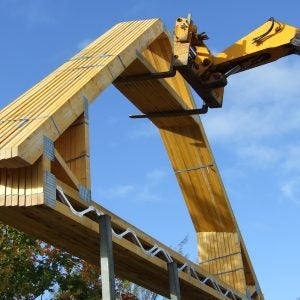The assessment was made by the European Federation of the Parquet industry (FEP), which represents companies who manufacture either solid wood flooring or engineered wood flooring with a top timber wear layer of over 2.5mm in thickness.
FEP’s assessment of 2020 as a stable year is a preliminary forecast and is the result of best estimates discussed with member country representatives at the recent FEP board meeting held online.
Parquet market performance in Austria, Sweden, Switzerland, and, to a lesser extent, Spain, have totally, or partially, compensated, during the second half of the year, the bad performance observed in March-April, 2020.
Still on the positive side, parquet consumption in Germany, the biggest European parquet market, has grown further, helped by a renovation impetus.
On the other hand, despite a good summer and a good renovation rate, France and Italy have not been able to offset the loss experienced during the spring lockdown and reported declines in parquet consumption.
FEP said while there are uncertainties for the future regarding the potential impacts of a third wave of the virus, the restart of travels thanks to vaccines and the long-term economic consequences of the pandemic (recession, reduced public spending and decline in new projects), some habits have changed and this crisis also represents an opportunity for the parquet industry, which has already well benefitted from the increase of the renovation rate and of its relatively higher use of wood flooring solutions.
“It seems that not only the European authorities have now understood the positive role played by wood and wood products to tackle climate change by saving CO2, but the end-consumers as well, bringing nature into their homes,” it said.
Due to the pandemic, the physical FEP’s 65th General Assembly and 45th Parquet Congress are postponed to October 21 & 22, 2021 in Athens, Greece.






